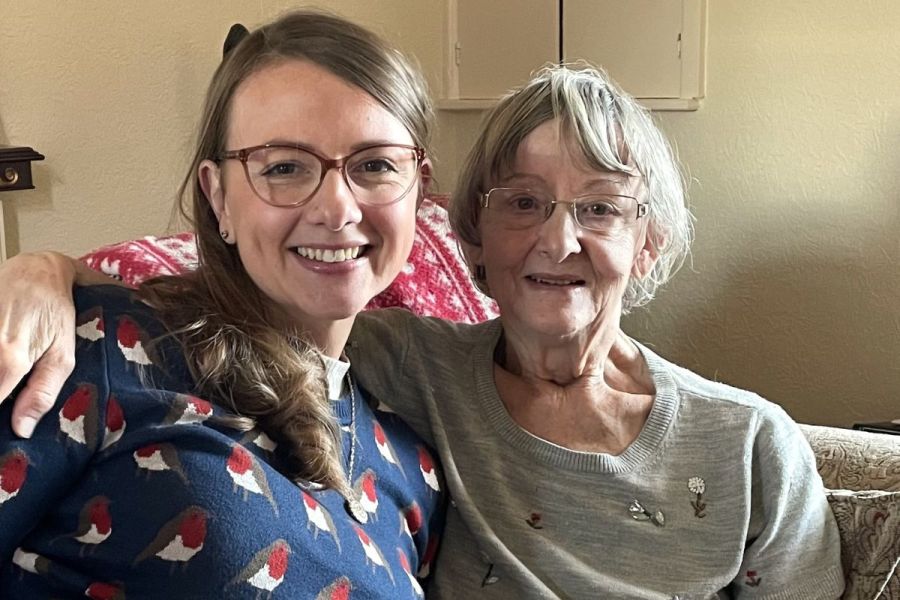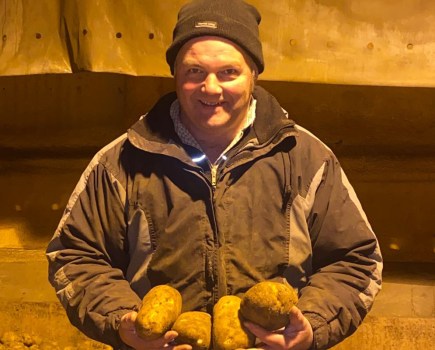By Janine Adamson
“Remember the real me when I cannot remember you” – wow, as someone who’s cared for a relative with dementia, that quote has brought a tear to my eye.
I doubt I have to justify why I’m opening up a conversation regarding this terrible disease, after all, the Alzheimer’s Society estimates there are around 982,000 people currently living with dementia in the UK.
This, coupled with the nature of our business – agriculture is a multi-generational game – means I’m certain many of you will have had some form of experience with what’s simply, a devastating illness.
My first encounter with dementia was around 15 years ago when we noticed subtle shifts in my nan’s personality. Typically a very bright, kind and tolerant individual, she became increasingly frustrated and short-fused. There were of course the obvious memory lapses, but nothing hugely significant; she just seemed a little different to usual.
Fast-forward a few years and the television remote control was in the fridge, a horse was frequenting the garden (it wasn’t) and ‘home’ was a place she hadn’t lived at for near on 40 years. Through a change in circumstance I was living with her at the time, yet rather than her granddaughter, I’d become ‘that girl upstairs’. Where had the lady we so dearly treasured disappeared to?
Some days it would be a sheer battle of wills – us versus dementia. Yet others there’d be a fleeting glimmer of hope that the person we so desperately missed was still with us. Because that’s the worst part – dementia gradually pecks away at someone’s spark from the inside out until there’s little left but a shell.
As for my mum, who took on the lion’s share of care duties, I have nothing but respect for the sacrifices she made – the missed social occasions, the early starts and late nights, trying to stay five steps ahead, the inability to ever switch off. I fell in the middle, helping out where I could around my job plus desperately not wanting to add to the burden in any way.
Yes we had carers and medical support, but in a bid to enable nan to keep her home (and what was temporarily my home), we had to seriously lock in.
For me, the worst part is the confliction. Dementia tests every fibre of your patience – it feels personal. You have to be incredibly strong willed and remember it’s the disease talking not your loved one, even through the tears, tantrums and lost back door keys.
Life becomes nothing but repetition on so many levels – being asked the same question 10 times over, listening to the same tale (which you’re unsure whether is fictitious or not), and playing out the same moves week in week out, in a bid to maintain routine.
Then there are the huge waves of guilt after perhaps a raised word or having had a negative thought towards them. But enduring love keeps you going, it becomes an honour to defend their dignity and try to protect them from this thief of minds.
Finally there’s grief. You deeply mourn the person you once knew as they slowly ebb away in front of your eyes. You crave having a ‘normal’ conversation or to seek their sage advice.
A few months after I’d vacated my nan’s guest room, the decision was made that the time was nigh and we should seek residential care, for safety reasons primarily. There had been very close calls with the gas stove, for one. However, in what became a strange twist of fate, my nan was diagnosed with terminal cancer and passed away just three weeks later.
Dementia is cruel for all involved yet I keep going back. Not only is it the turn of my paternal grandmother, but I’ve also chosen to volunteer as a community befriender for the elderly. Once a week I visit a lady who has Alzheimer’s (a form of dementia) to keep her company and relieve a little of the pressure I’m sure her family is enduring.
For you – our readers – I can’t begin to imagine the magnitude of dealing with what’s been a relentless season, plus potentially having to care for elderly loved ones. These are family members who’ve no doubt given their all to the farm, been integral in its making and whom you love dearly. It must be crushing.
But as that opening quote suggests – try to concentrate on the person beyond the dementia and when it’s the disease speaking, it’s often not the truth. Finally, in all of this, remember to be kind to yourself – you matter more than ever.
This article was taken from the latest issue of CPM. For more articles like this, subscribe here.
Sign up for Crop Production Magazine’s FREE e-newsletter here.




